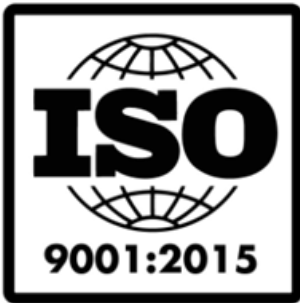235
Maintenance Management & Engineering Training Courses
Data Analysis Techniques for Engineers & Technologists

Dubai
Hotel Name
click here
12 Jan 25 : 16 Jan 25
25 Hours
3450 USD

We apologize for any inconvenience you may experience while using the website as it is currently undergoing updates.
235
Maintenance Management & Engineering Training Courses
Data Analysis Techniques for Engineers & Technologists

Dubai
Hotel Name
click here
12 Jan 25 : 16 Jan 25
25 Hours
3450 USD
Training
Details
Introduction
Corporate ethos which demands continual improvement in work place efficiencies and reduced operating, maintenance, support service and administration costs means that managers, analysts and their advisors are faced with ever-challenging performance targets.
In order to make decisions resulting in improved business performance it is vital to base decision making on appropriate analysis and interpretation of data.
This seminar aims to provide those involved in analysing data with the understanding and practical capabilities needed to convert data into information via appropriate analysis, and then to represent these results in ways that can be readily communicated to others in the organisation.
The course adopts an applications-oriented approach, minimizing the time spent on the mathematics of analysis and maximizing the time spent on the use of practical methods and understanding why such methods work . Delegates will explore Excel's functionality and Data Analysis Tool Pack to investigate realistic data from a wide range of technical and non technical example applications.
Organizations that are able to make optimum decisions will enhance their ability to compete on the global stage.
The participants on this course, and therefore the teams that they work within will, as a result of their training, be better positioned to influence the organization with recommendations based on objective data analysis that in turn produce a higher performing business.
Individuals exposed to this training will develop new insights into the field of data analysis, and they will learn why the best companies in the world see data analysis essential to delivering the right quality products and services at the lowest costs.
Participants will gain an understanding and practical experience of a range of the more common analytical techniques and data representation methods, which have direct relevance to a wide range of issues.
The ability to recognize which types of analysis are best suited to particular types of issue.
A sufficient background and theoretical knowledge to be able to judge when an applied technique will likely lead to incorrect conclusions.
The course has been designed for professionals whose jobs involve the manipulation, representation, interpretation and/or analysis of data. Basic familiarity with PC and in particular with Microsoft Excel is assumed. The course consists of a large amount of data analysis and therefore delegates will be expected to be numerate and enjoy working with data.
Day 1 - Asset Cost Management Introduction
Maintenance & Reliability Best Practices are critical for every successful individual and company. This workshop delivers many practical and new Maintenance and Reliability Best Practices concepts and tools. You will discuss these concepts and practice using practical tools in case studies and discussion groups. The costs associated with equipment downtime and reduced production can be significant. Learning how to effectively manage all aspects of your industrial facility is a must.This workshop is a combination of instructor lead topic areas and class discussions. Interactive discussions will allow you to hear and learn best in class applications relating to maintenance planning and cost management strategies. You will have the opportunity to ask lots of questions in order to consider how best to apply these tools and techniques in your organization.
Day 2 - Laying the Groundwork
Maintenance & Reliability Best Practices are critical for every successful individual and company. This workshop delivers many practical and new Maintenance and Reliability Best Practices concepts and tools. You will discuss these concepts and practice using practical tools in case studies and discussion groups. The costs associated with equipment downtime and reduced production can be significant. Learning how to effectively manage all aspects of your industrial facility is a must.This workshop is a combination of instructor lead topic areas and class discussions. Interactive discussions will allow you to hear and learn best in class applications relating to maintenance planning and cost management strategies. You will have the opportunity to ask lots of questions in order to consider how best to apply these tools and techniques in your organization.
Day 3 - Applying the Value based Process
Maintenance & Reliability Best Practices are critical for every successful individual and company. This workshop delivers many practical and new Maintenance and Reliability Best Practices concepts and tools. You will discuss these concepts and practice using practical tools in case studies and discussion groups. The costs associated with equipment downtime and reduced production can be significant. Learning how to effectively manage all aspects of your industrial facility is a must.This workshop is a combination of instructor lead topic areas and class discussions. Interactive discussions will allow you to hear and learn best in class applications relating to maintenance planning and cost management strategies. You will have the opportunity to ask lots of questions in order to consider how best to apply these tools and techniques in your organization.
Day 4 - Ensuring the Continuity of the Value-based Process
Maintenance & Reliability Best Practices are critical for every successful individual and company. This workshop delivers many practical and new Maintenance and Reliability Best Practices concepts and tools. You will discuss these concepts and practice using practical tools in case studies and discussion groups. The costs associated with equipment downtime and reduced production can be significant. Learning how to effectively manage all aspects of your industrial facility is a must.This workshop is a combination of instructor lead topic areas and class discussions. Interactive discussions will allow you to hear and learn best in class applications relating to maintenance planning and cost management strategies. You will have the opportunity to ask lots of questions in order to consider how best to apply these tools and techniques in your organization.



European Quality for Training and Consultancy is certified
ISO 9001-2015

All rights reserved
Course Options
 Madrid
Madrid Kuwait
Kuwait Beijing
Beijing Marrakech
Marrakech Amman
Amman Dubai
Dubai Jakarta
Jakarta Jeddah
Jeddah Sharm El Sheikh
Sharm El Sheikh Dubai
Dubai Amsterdam
Amsterdam Casablanca
Casablanca Paris
Paris Cyprus (Larnaka)
Cyprus (Larnaka) Geneva
Geneva Dubai
Dubai Zurich
Zurich Vienna
Vienna Hong Kong
Hong Kong Munich
Munich Alkhobar
Alkhobar Istanbul
Istanbul Toronto
Toronto Manama
Manama Dubai
Dubai Roma
Roma Boston
Boston Cape Town
Cape Town Stockholm
Stockholm Dubai
Dubai Prague
Prague Dublin
Dublin Doha
Doha Athens
Athens California
California Washington
Washington Riyadh
Riyadh Cairo
Cairo Dubai
Dubai Kuala Lumpur
Kuala Lumpur Milan
Milan San Francisco
San Francisco London
London Madrid
Madrid Kuwait
Kuwait Beijing
Beijing Amman
Amman Dubai
Dubai Jakarta
Jakarta Jeddah
Jeddah Sharm El Sheikh
Sharm El Sheikh Salalah
Salalah Amsterdam
Amsterdam Casablanca
Casablanca Dubai
Dubai Paris
Paris Geneva
Geneva Vienna
Vienna Manama
Manama Munich
Munich Dubai
Dubai Istanbul
Istanbul Alkhobar
Alkhobar Toronto
Toronto Florida
Florida Stockholm
Stockholm Boston
Boston Dubai
Dubai Roma
Roma Prague
Prague Dublin
Dublin Athens
Athens Dubai
Dubai California
California Tbilisi
Tbilisi Washington
Washington Berlin
Berlin Copenhagen
Copenhagen Barcelona
Barcelona Kuala Lumpur
Kuala Lumpur